5G: Why Orkney got the latest tech before London
- Published
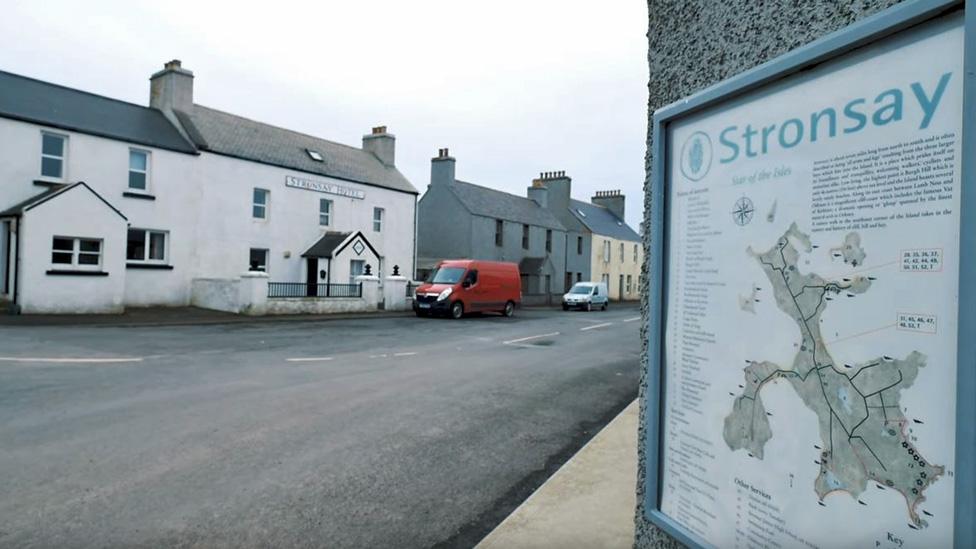
The island of Stronsay is taking part in the 5G trial
People living in six major cities are now able to access the UK's first 5G network for the first time.
But the latest superfast technology has already been available for months - to islanders in Orkney, farmers in Shropshire, and some cows in Somerset.
They have been taking part in a trial, part funded by the UK government, which is designed to make the case for investment in areas without lots of customers.
5G Rural First is being delivered by a consortium of more than 30 partners, including tech companies, universities and the BBC.
In Shropshire, researchers have been running what's known as a hands-free hectare, with a drone and a tractor operating autonomously using data sent over 5G to farm a field.
In Somerset a herd of cattle on a dairy farm has been fitted with collars transmitting information about their health and behaviour, and the technology is also being used to run automated milking and feeding.
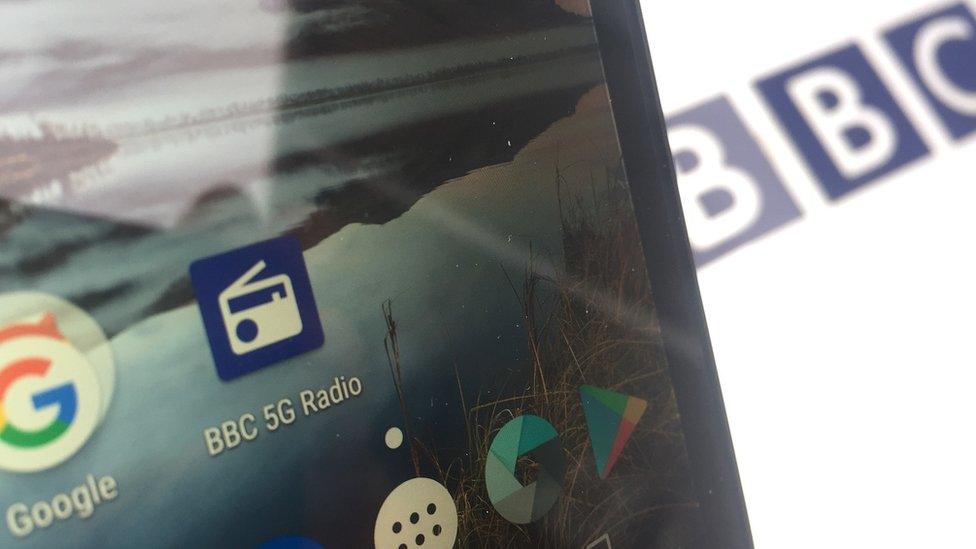
Thirteen BBC radio stations have been broadcast over 5G in Stronsay
A range of possible uses have been trialled in Orkney.
These include maintaining wi-fi on an inter island ferry, helping to manage numbers at tourist hotspots, protecting the health of children, and monitoring salmon in a fish farm and turbines on a wind farm,
In the Orkney island of Stronsay, the BBC has issued special handsets to 20 users so they can receive live and on demand radio programmes in an area with slow broadband speeds and little or no digital radio coverage - a classic "not spot".

Twenty participants in Stronsay have been given the special 5G handsets
Before the trial, islanders complained that it could take up to 10 minutes for some people to download an email.
Shona Croy from Orkney Council said: "We were really keen to try and do something that overcomes this barrier of rural areas being last to get a service - or not getting it at all.
"But the economic case for coming here is poor, so are there other ways we can look at delivering services?"
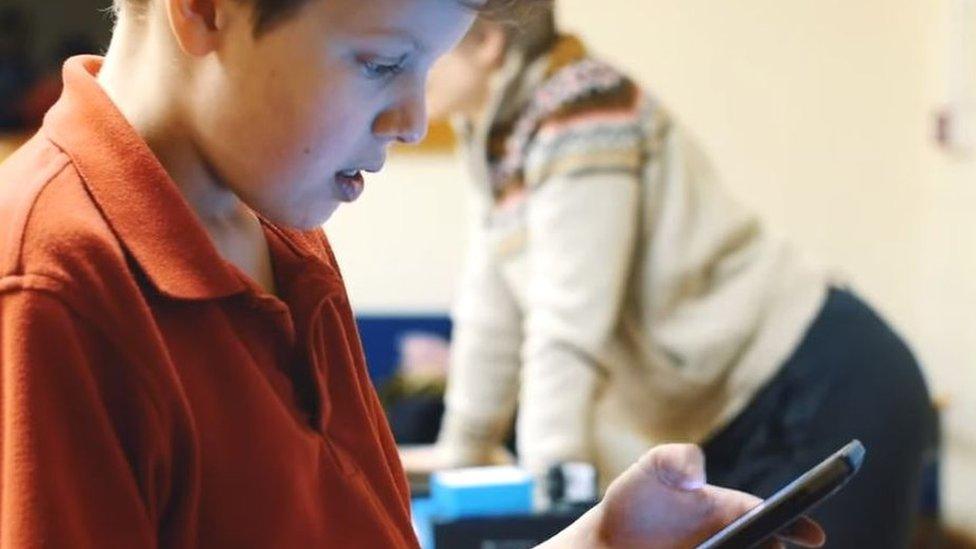
Children at Stronsay junior high school are big fans of the BBC's Asian Network
Anecdotal evidence from teachers at the island's junior high school - backed up by data from the devices - suggests that teenagers in Stronsay have become big fans of the music played on the BBC's Asian Network. It is one of 13 BBC stations they can now access, including BBC Radio Orkney.
Others say they have used the handsets as mobile hotspots, giving them access to much faster download speeds for films and music.
But not everyone in Orkney is happy with the trials.
One family have withdrawn their children from school in Stronsay because the 5G mast has been positioned on the building.
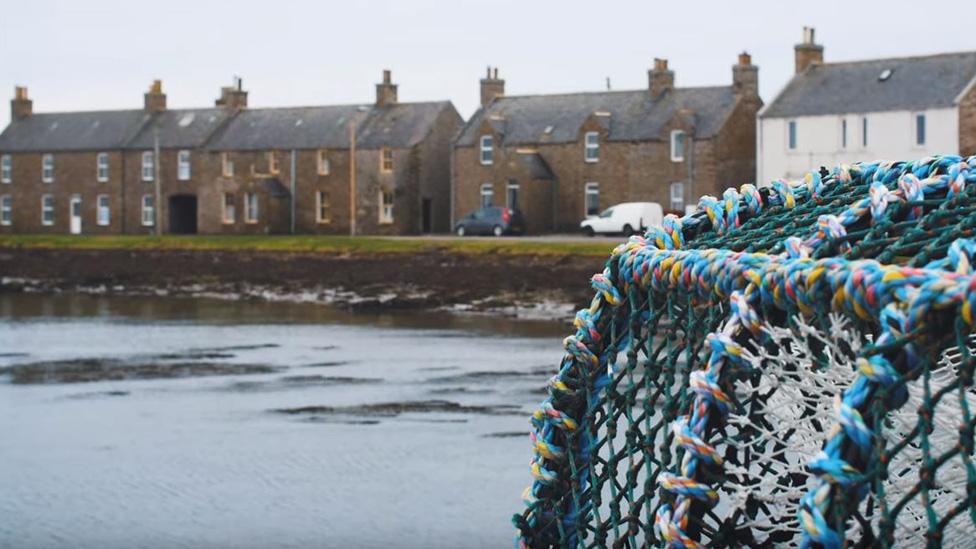
They say they were not consulted about the trial, and have not been reassured that it is safe.
Members of a social media group concerned about the effects of 5G on plants, wildlife and the human population have gathered signatures in Kirkwall, Orkney's main town, for a petition calling for a halt to the trials.
Orkney Islands council - one of the partners in the 5G Rural First consortium - says it consulted the UK-wide adviser, Public Health England, before any work was undertaken.
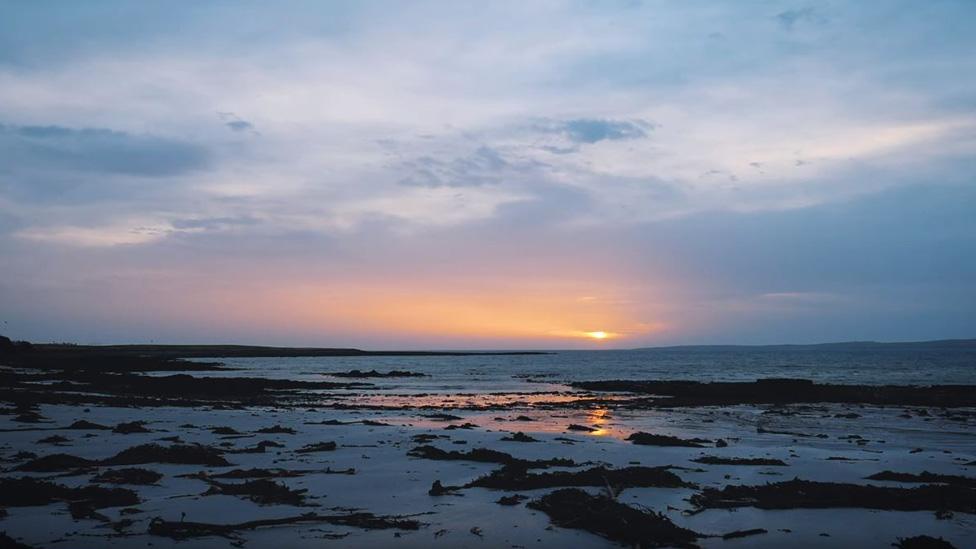
It says any additional exposure to radiation because of 5G will be well within World Health Organisation limits, so there should be no impact on health.
EE says it is upgrading to 5G in the places where it can make the biggest difference to the most people, which is why the roll out is starting in the busiest parts of some of the UK's biggest cities.
Its network will be available to customers in London, Cardiff, Edinburgh, Belfast, Birmingham and Manchester who are prepared to buy a new phone and pay £54 a month for access.
Critics of the telecoms companies - including Orkney and Shetland's MP, Alistair Carmichael - say that shows the mobile operators have failed to learn from the mistakes made during the rollout of 2G, 3G and 4G, and that they always leave the hard-to-reach areas until last.
5G Rural First is an attempt to find other justifications for bringing investment in infrastructure to so-called remote and rural areas.
- Published30 May 2019

- Published22 May 2019

- Published2 November 2018
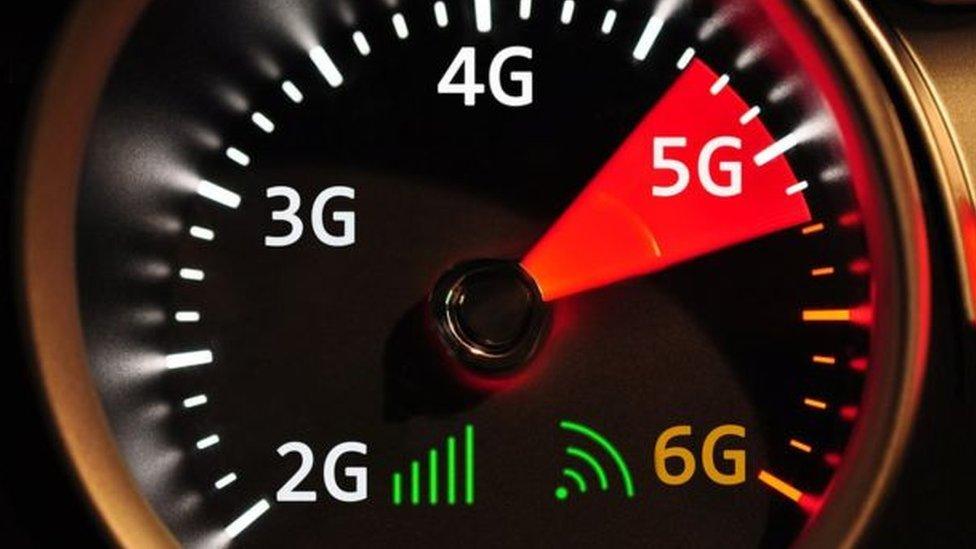
- Published16 October 2018
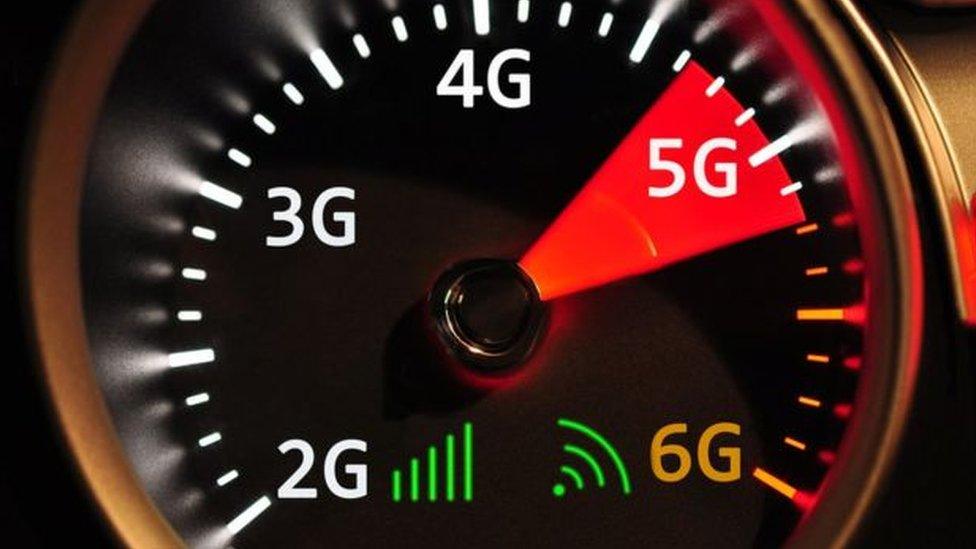
- Published28 January 2020
